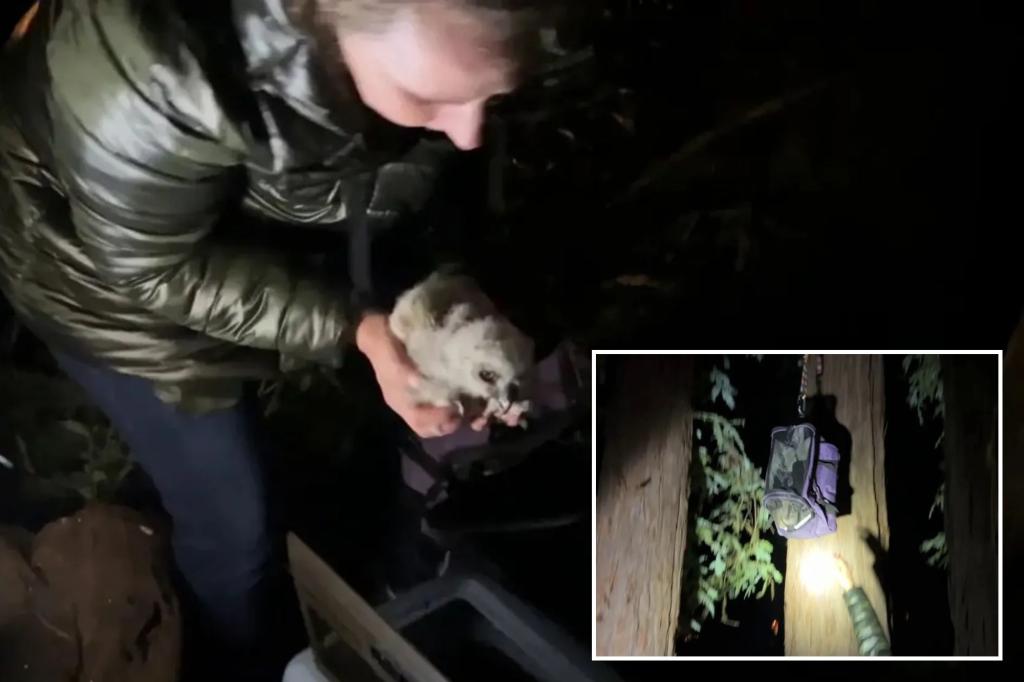Volunteers at the WildCare Wildlife Hospital and Rehabilitation Center are working around the clock during baby season in California due to disruptive winter storms and spring yard cleaning disturbing nests. A surge in patient intakes occurs during weather events that lead to squirrels and birds falling out of nests. Late-season storms this year have delayed baby season by a month, resulting in an influx of patients at WildCare. The center sees 60-70% of their annual 3,500 patients between March and August, with the general public contributing 80% of the patients.
One recent case involved three great horned owlets that were affected by a late-season storm. While one didn’t survive the fall, the others were saved and reunited with their parents by a team of volunteers. The process of replacing the nests and reuniting the babies with their parents was a challenging but successful effort. WildCare focuses on rehabilitating animals with minimal human interaction so that they can be raised and trained by their own parents in the wild.
Staff and volunteers at WildCare take great care to ensure that animals do not become accustomed to humans during their time at the center. The animals are rehabilitated with minimal human interaction to ensure they can be released back into the wild successfully. Baby birds like the starlings need to learn how to hunt insects before being released. The center’s goal is to provide injured or orphaned animals with a second chance at life in the wild by fixing the wrongs done to them.
Melanie Piazza, the Animal Care Director at WildCare, advises individuals who find injured or abandoned animals to contact a wildlife rehabilitator rather than approaching or picking up the animal. Putting the animal in a warm, dark, quiet place is essential until professionals can suggest the best course of action. Feeding an injured animal the wrong food at the wrong time can be fatal. Piazza sees many cases of “kidnapped” deer each year, where well-meaning individuals mistakenly assume the animal is orphaned when it is left hidden by its parent.
In her 22 years at WildCare, Piazza has encountered over 200 different species of animals, from rattlesnakes to mountain lions. The work at WildCare involves providing the same level of care to all patients, whether it’s a common pigeon or a rare spotted owl. The ultimate goal is to give wild animals a second chance at life in their natural habitat. The center works to correct the harm done to wildlife and ensure they have the opportunity to thrive in the wild. Every effort is made to rehabilitate animals so they can rejoin their natural environment.















